My Experience with Loss and Grief
Jane Susan Poc
August 15th, 1980 – April 23rd, 2020
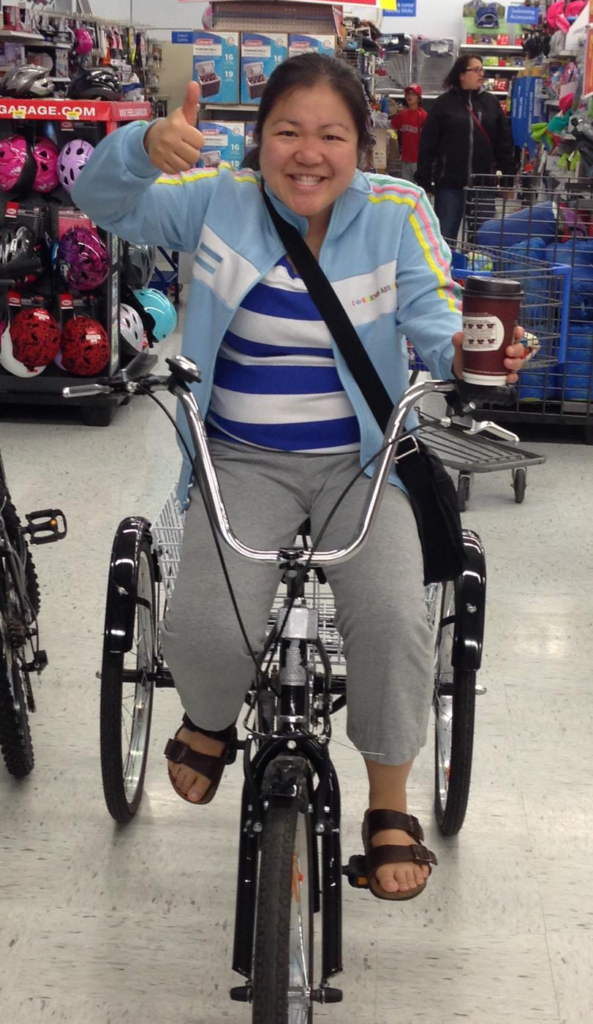
I have been stuck between battling waves of grief each time I sit down to write words that could accurately honour someone like Susan. Even as I am writing this, I am still not prepared. Because what do I really know about loss and grief, is what I keep asking myself.
First, everything written here is written through my lens as someone who has been through the loss and grief of a loved one during one of the toughest, most life-shattering year of her life.
This is my experience with grief. It may not be anyone else’s. But my hope is that by sharing my story and my understanding of loss and grief, it will provide some comfort to others who have experienced tragedy and loss.
I have devoured books and textbooks and scientific papers and other people’s experience with loss trying to understand how to deal with grief. But more, I needed answers on how to live happily again when you lose such a big part of you. Even though I still feel the ache, it is no longer as sharp as it first was. Here are my lessons in loss and grief.
April 23rd, 2020
I woke up to my house phone ringing – a phoneline I only have for emergency calls like this. I answered and all I heard was crying. Without warning, I heard: “Susan passed away tonight.”
The shock was so obliterating and overwhelming and so profoundly disassembling. It is said that until you experience great loss you can’t possibly understand what it feels like. I get it now.
Susan is my cousin. Family, yes; but more than that, she was one of my best friends, my chosen family. Almost every childhood memory I can still remember, Susan was part of it. To say she was a very big part of my life is hugely understating her value and importance in my life.
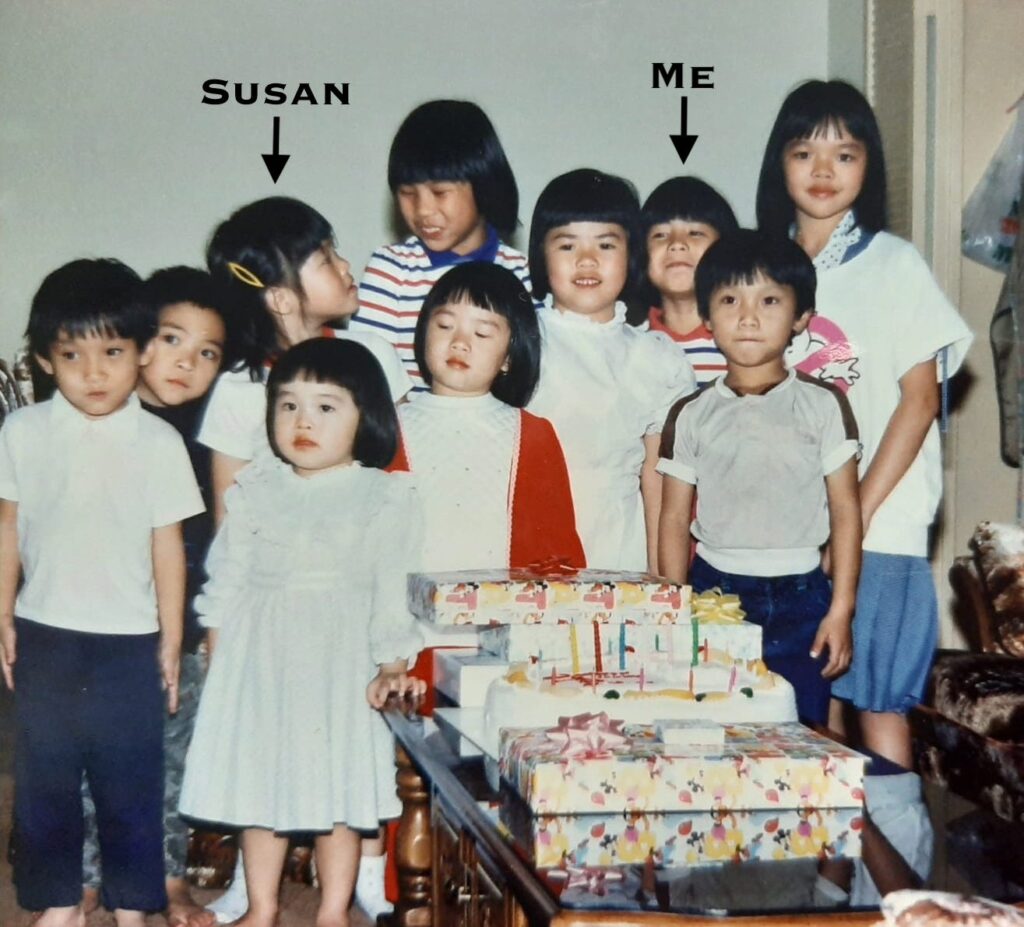
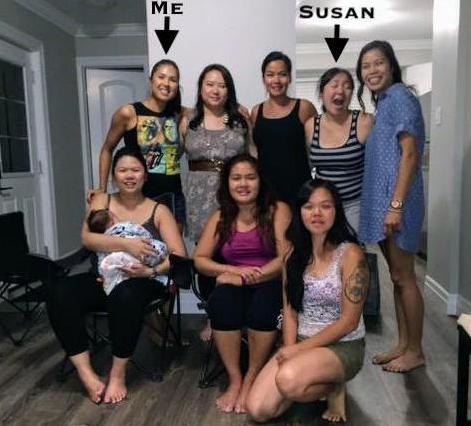
Every single person who has ever had the pleasure of crossing paths with Susan would tell you the same thing: Susan is such a bright light, full of joy, and had such an enormous amount of love for life!
Although I still feel the soul-crushing pain each time I remember, because I do sometimes forget, that she is no longer here in the physical with us, I do also feel immense gratitude that she was in my life, in the capacity that she was, for as long as she was. But I also have great sympathy for those who were not blessed with the opportunity to meet her before she was so suddenly taken away from us.
Tomorrow marks one year since Susan passed away.
It has been a year and yet, it continues to be a painful path. But, I am feeling somewhat better recently. Different from before Susan died but better, nonetheless.
How? Oddly, or maybe not so odd, I realized that time alone does not necessarily make things better. What I have learned is you have to do the work. As I mentioned, I have been learning and reading and consuming all that I can bear about loss. And alongside the learning from reading, I have also learned through my own experience. Here’s what I now know about grief and how a little compassion can help the grief feel a little less excruciating.
1. Saying something awkward about my loss is better than saying nothing at all.
When something like this happens, we tend to run certain scripts. We have a script all figured out in the immediate aftermath of a loss. Make the announcement, plan funeral service, accept other people’s condolences, flowers, and food. And then, life goes on. Or, at the very least, give the impression that you are fine because nobody knows what to do or what to say around sadness, loss, and grief.
What if a funeral couldn’t happen and we could not say our final goodbyes, do we still pretend to go back to “normal”?
So, the grieving pretends while others around feign ignorance to their loss. And each encounter is like an awkward dance.
And that’s the thing: this collective clumsiness around tragedy and operating without a plan or script, it sometimes causes people to choose avoidance and just sweep it under the rug.
Loss and Grief Are Not Contagious
For some, the fear that surrounds grief is because people are under the impression that your sadness is contagious and therefore, they feel the need or have a heighten desire to avoid it.
And worse, any person who has lost someone they love to death will tell you about the well-intentioned, but sometimes insensitive comments coming from those on the other side. Empty platitudes in hopes to uplift.
“Everything happens for a reason.”
“She’s in a better place.”
“Life will get better.”
The rationale for these comments: they just don’t know what else to say. I understand this. And admittedly, I have probably made these awkward comments myself because I, too, ‘did not know what to say’.
But the truth is, all of this avoidance of loss and grief and this clumsiness around tragedy is really people’s feeble attempt to forget about their own mortality. Talking about the passing of another can make death feel uncomfortably close.
The sad part is, in keeping up this avoidance, by wanting to maintain these blinders, people wind up pushing away those who need them the most. Because loss and grief are lonely. It is lonely even if you’re surrounded by people who love you and who are also experiencing the same loss. And avoidance of grief makes the loneliness that much more unbearable.
So, what do you do instead?
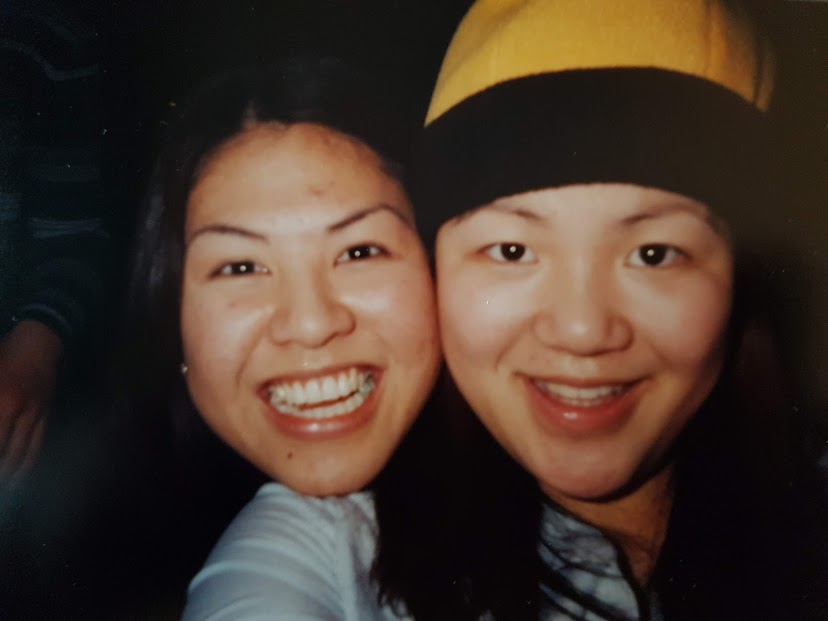
For me, sit with me inside of my pain and let me surrender to all the emotions that arise. Ask about my person I lost. Ask me to talk about all the memories I have of Susan so I can feel the sincerity in your compassion. Ask me how I am feeling because sometimes, I want you to know I am not ‘fine’. Sometimes I want you to know that I am actually a hot boiling pot of grief ready to spill over at any moment.
The point here is that you don’t need to experience this soul-destroying grief on your own to comfort people. And you don’t need to have this super gigantic will of compassion. It can be as simple as asking how the person grieving is feeling, or giving them a warm hug, or just being silently in their company. Just please, don’t avoid talking about my grief.
2. People don’t ever “move on”. Never. People move forward.
Most people have no proximity to traumatic loss, myself included until Susan’s passing.
And so, what I knew about grief was that grief seems to end after the funeral. That’s when life goes back to “normal” – whatever “normal” means after loss.
And therein lies the problem, this pervasive idea that we should be able to return to “normal” and we should be able to “move on” afterwards.
We live in a culture and society that has standardized and compartmentalized grief and that’s what needs to stop. We need to stop acting as if there’s a standard operating procedure for grief. There isn’t.
Because how do you go from devastating grief to being “fine” or “normal” or “moved on” with something that is so messy and seemingly impossible to overcome?
The thing I most want to share with those who are grief-adjacent to but not yet grief-stricken is that we don’t ‘move on’ from our loved ones whom we have lost. We can only move forward with our loved ones.
We don’t look at the people around us experiencing life’s joys and wonders and tell them to “move on”. And we don’t say “get over it” or “enough time has passed, it’s time to stop thinking about it” to those who are experiencing momentous joyful milestones.
So, why is it commonplace to say and expect someone grieving a loss to “move on”?
The thing is, for those who don’t know about my loss, by any measure of my life, life is good. But I haven’t “moved on”.
And another thing is, I hate that phrase because it scares me. Because what those two little words imply is that Susan’s life and death and love are just moments that I can leave behind me. And that is the furthest from the truth.
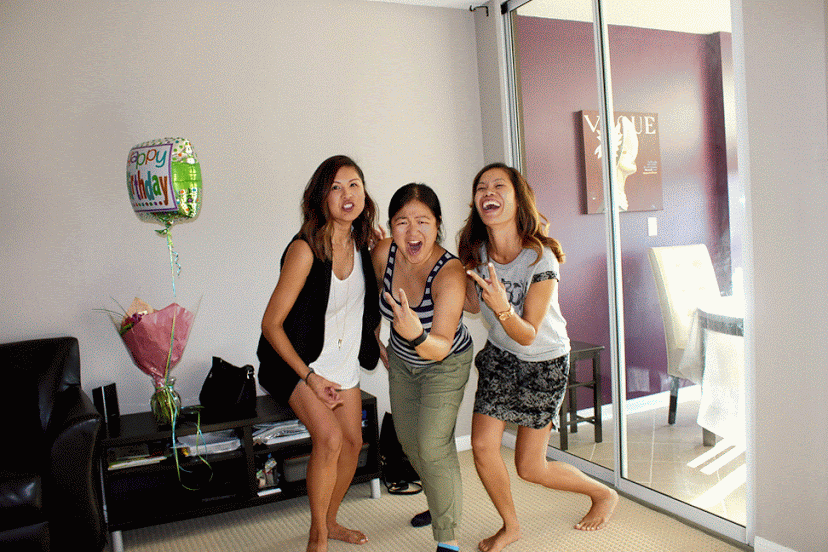
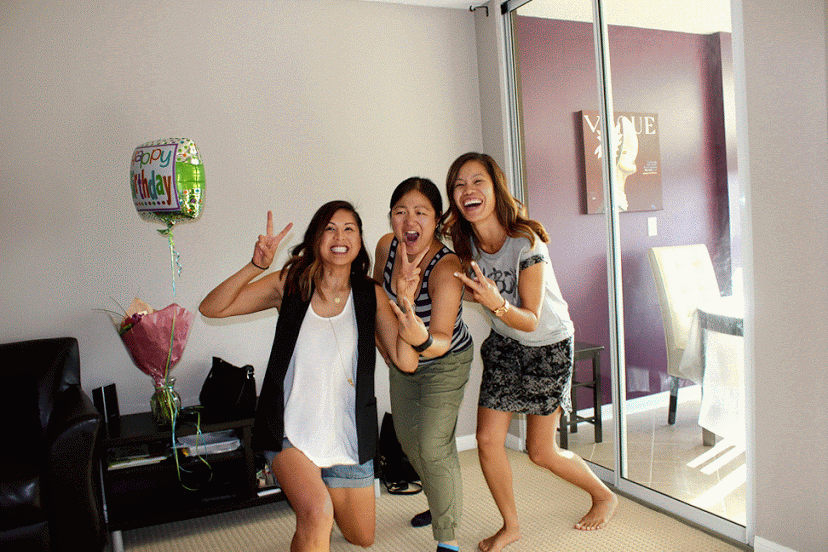
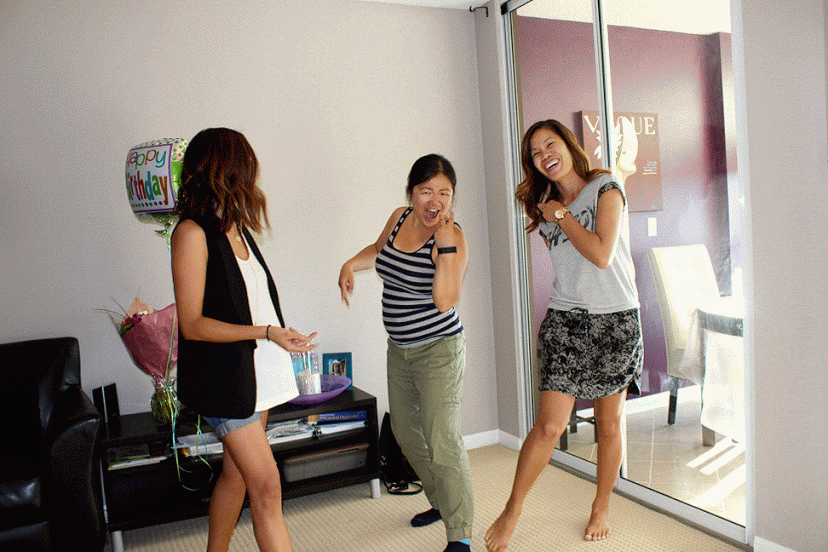
But the fear doesn’t stop there. I constantly fear forgetting the sound of Susan’s voice, the sound of her laughter. But mostly, I fear that others will forget her and what her life meant to all of those she touched.
You Never Forget. But Sometimes You Do Forget About Your Loss
If you’re ever in my company, you will notice that when I talk about Susan, I slip so easily into the present tense. At first, I would catch myself doing it, thinking that maybe her passing just hasn’t sunken in yet. And it’s not denial or forgetfulness. It’s because Susan, who I loved and still love, but lost, is still so present for me.
So, when I say, “Oh, Susan is…” it’s because Susan still is. And I know it’s not in the same way she was before, nor is it an inner spiritual meaning, “oh, she will always be here”. But rather, it is that Susan is indelible and so, she is and will always be present for me.
She is present in the work I do; hence, this post. She is present in the way I think about life now. She is present in the way that I live and love. And sadly, she is present in the way I now know how to approach death and grief.
So, I have not moved on from Susan. I have moved forward with Susan.
I still keep a retro zip up (seen in the bike picture above) that Susan owned & wore religiously hanging in my closet in plain sight because I was so afraid of losing more of her than I had already lost. And I was so desperate to make sure that she would always be a part of me.
What I have learned is that of course she would be. Because when you grow up knowing someone who has been through so much with you, and share so many memories only she shares with you, and who knows and understands your family like you do, that always stays with you.
3. Loss and Grief happens alongside and mixed in with all other emotions.
Grief isn’t just about being sad all the time.
I remember celebrating my daughter, Sage’s, 1st birthday just 2 days after Susan’s death. I was happy on that day. My husband and boys were making me smile. I recall FaceTime’ing my parents and having a Zoom birthday party with them. And I remember being filled with joy seeing the smile on Sage’s face.
But I felt like I was in an alternate universe, as if there were 2 parallel plots unfurling at the same time. I would have brief moments of joy, then my brain would say, “hey, let’s be sad and think about Susan”.
Celebrating Sage’s birthday really helped me realize the enormity of what I had lost with Susan’s passing. But just as importantly, looking back at those moments helped me realize that my grief and sadness for Susan and my love and happiness for life are not opposing forces. Meaning that my life can be filled with pain and sorrow, but also, jammed packed with love and joy.
And, this is how I have been better recently. I haven’t closed myself around this loss and made it the centre of my life. I continued to live. I continued to enjoy the world around me and smile and laugh and be genuinely happy. Because I know that the experience of Susan’s passing has marked me and made me, just as much as the joyful moments have. And just as permanently.
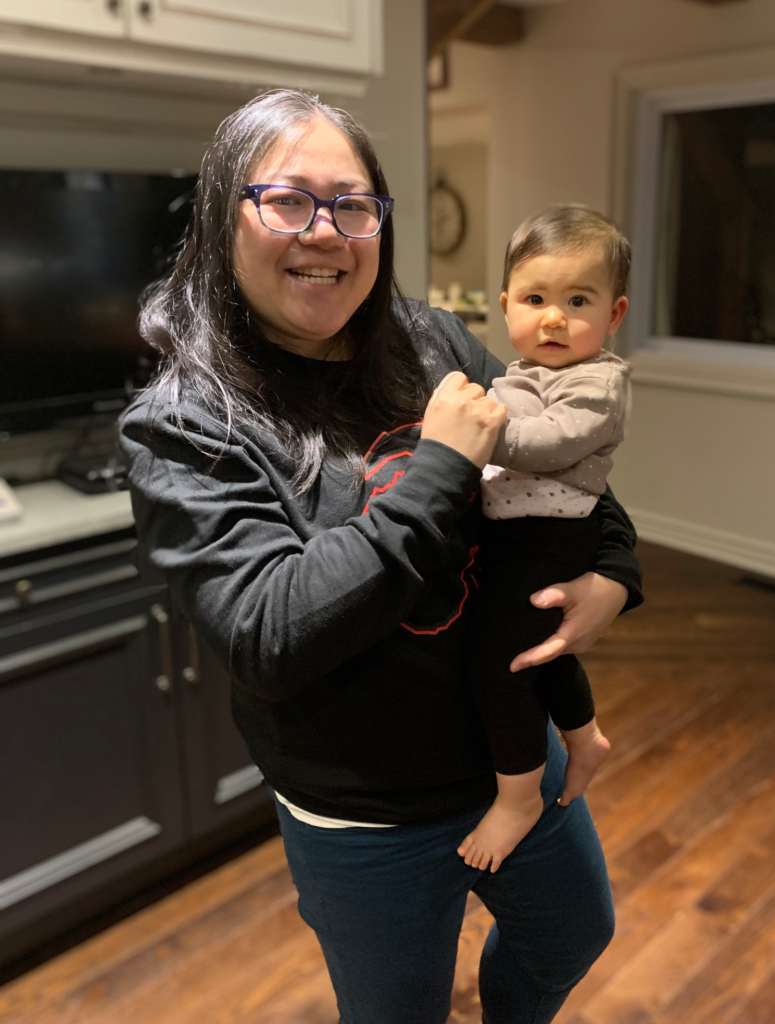
Loss and Grief Cannot Be Avoided
Here’s the thing, loss and grief cannot be prevented. We cannot protect people from experiencing it. And we cannot shield each other from that loss. So, what can we do?
We can remind each other that some things can’t be fixed. And also, that not all wounds are meant to heal. We need people to remember that grief is this multitasking emotion. That you can and will be sad, happy, in love, and grieving in the same year, week or even the same breath.
We need to remember that a grieving person is going to laugh again and smile again. And yes, absolutely, we are going to move forward. But that doesn’t mean we have moved on.
My fear of forgetting Susan is no longer a fear because I now know I will never forget Susan. Even long after people stop asking me about her – she is and will always be with me.
With that said, however, if you ever need a good, tears-spilling down your face, belly-aching laugh, I welcome you to sit with me and ask me about my adventures with Susan.





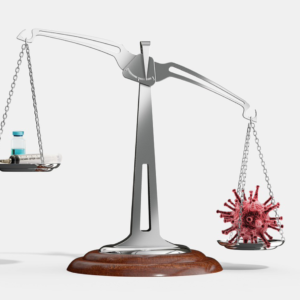

I’m so sorry to hear of your loss. Your post is beautiful and brought tears to my eyes. Thinking of you and sending a big hug.
Hi Amy,
Thank you for your kind words. More, thank you for your hugs; it is definitely welcomed and needed.
It was a heavy day yesterday.
~Kim